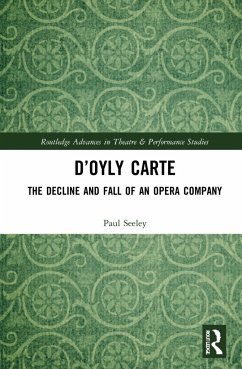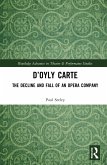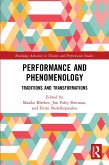This book considers and discusses aspects of the management of the D'Oyly Carte Opera Company in the twentieth century since the death of its founder Richard D'Oyly Carte, and concentrates on key events that contributed to its demise in 1982.
In this book, Paul Seeley follows the analytical model that proposes no single factor triggered the collapse, but rather several, both external and internal. In the case of an opera company the external factors may include public taste and market forces, but more significant are the internal factors such as the management decisions taken in response to external factors and how these compare with the original artistic aims, aspirations and business models of the founder. This is a study by someone with close observation of the administration; at the 1982 demise, Seeley was assistant to the company manager, having earlier served on the music staff.
The book is a must-read for music historians, theatre historians and arts-management professionals; as an uncompromisingly critical history of the D'Oyly Carte Opera Company it is designed to serve a wider public, not just the Gilbert and Sullivan opera specialist, but anyone keen to debate the desirability of private or public sponsorship of the performing arts.
In this book, Paul Seeley follows the analytical model that proposes no single factor triggered the collapse, but rather several, both external and internal. In the case of an opera company the external factors may include public taste and market forces, but more significant are the internal factors such as the management decisions taken in response to external factors and how these compare with the original artistic aims, aspirations and business models of the founder. This is a study by someone with close observation of the administration; at the 1982 demise, Seeley was assistant to the company manager, having earlier served on the music staff.
The book is a must-read for music historians, theatre historians and arts-management professionals; as an uncompromisingly critical history of the D'Oyly Carte Opera Company it is designed to serve a wider public, not just the Gilbert and Sullivan opera specialist, but anyone keen to debate the desirability of private or public sponsorship of the performing arts.
''Paul Seely's systematic and forensic analysis of the DOC case makes fascinating reading... After forty years many people recall DOC with goodwill and countless feelings of pleasure. However, the temptation to view this book as merely a nostalgic account of a valiant fight against cost pressures and changing audience tastes or as a tale of mismanagement and failure must be resisted. It is a must read for everyone who cares about the future of Gilbert and Sullivan and operetta. Many of the issues considered are equally relevant to the health of today's companies, professional and amateur, who deliver musical theatre. This analysis will hopefully assist them to escape a similar fate.'' G&S News Spring 2022 Alan Parfitt Society Librarian
"It is a welcome history that delves behind the scenes in the beloved company and exposes its shortcomings, some recognizable from its earliest days, that led to its refusal to change with the times and its ultimate demise."
Professor Rafe MacPhail, The Austin Savoyard.
"It is a welcome history that delves behind the scenes in the beloved company and exposes its shortcomings, some recognizable from its earliest days, that led to its refusal to change with the times and its ultimate demise."
Professor Rafe MacPhail, The Austin Savoyard.









